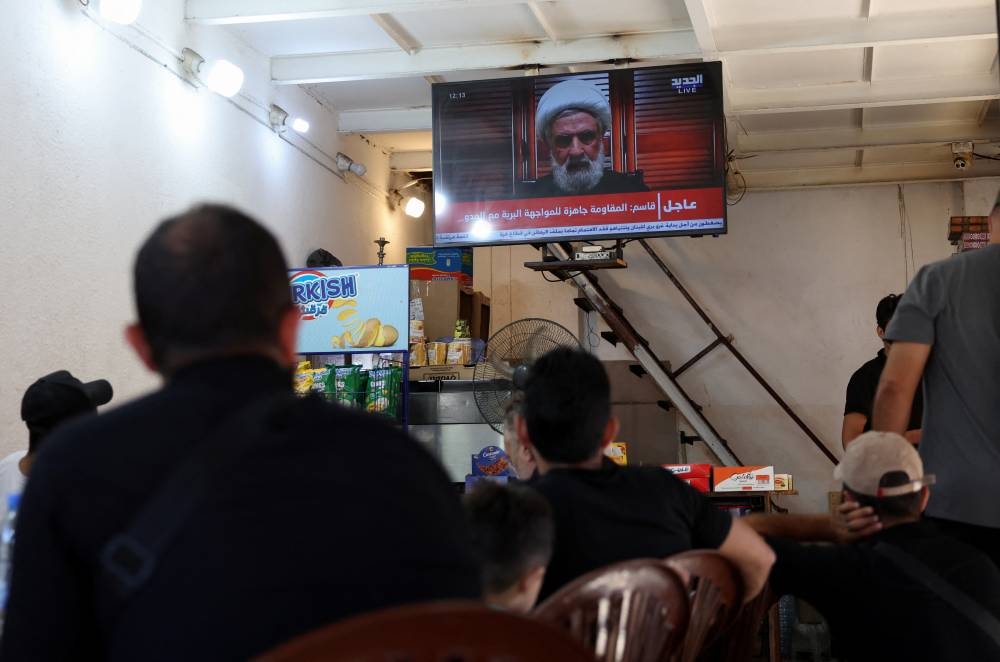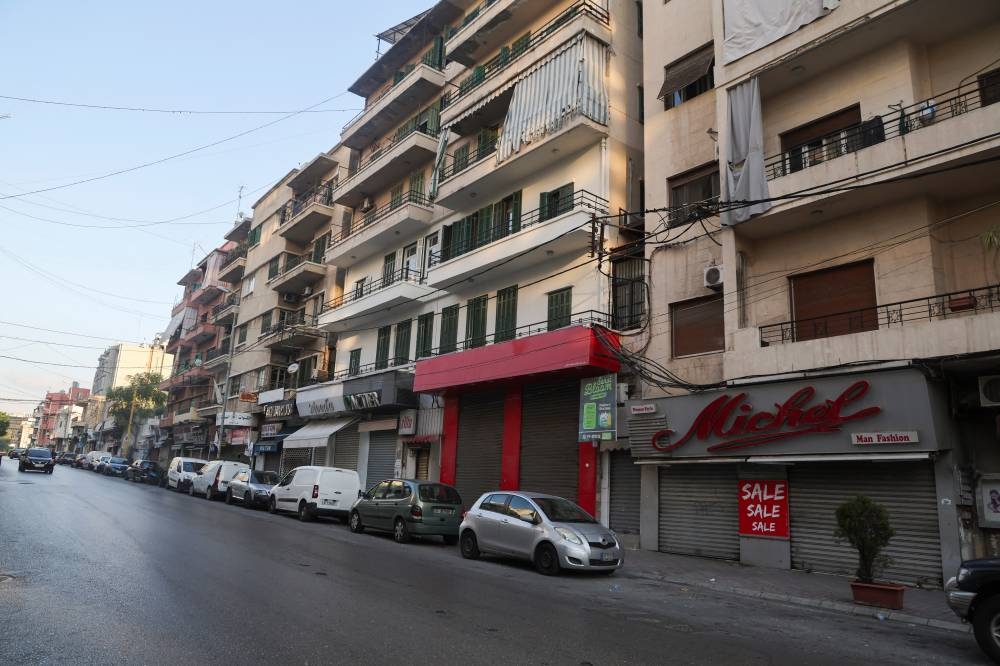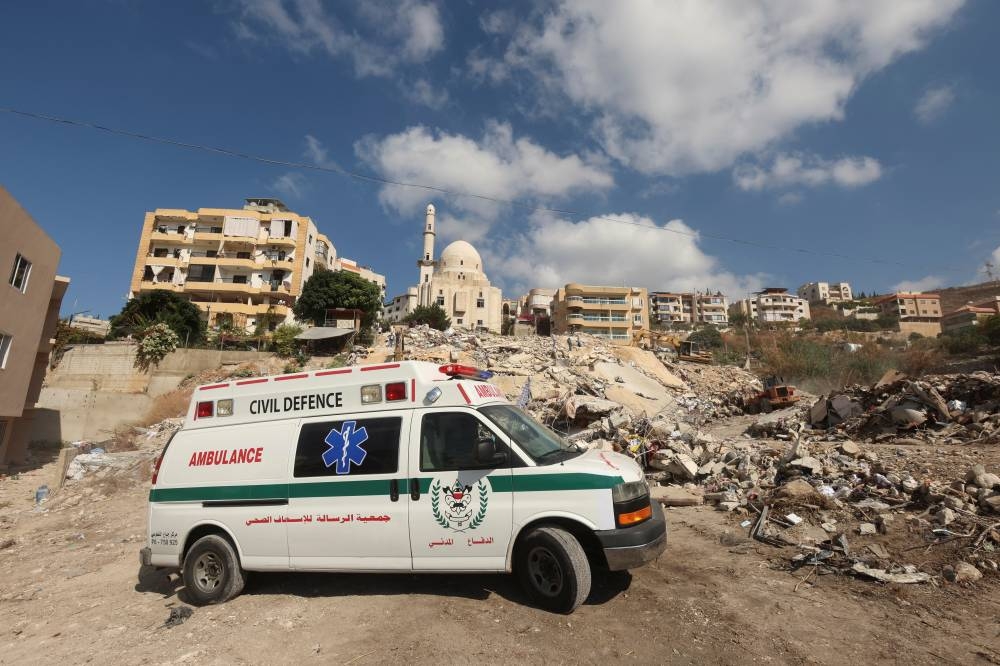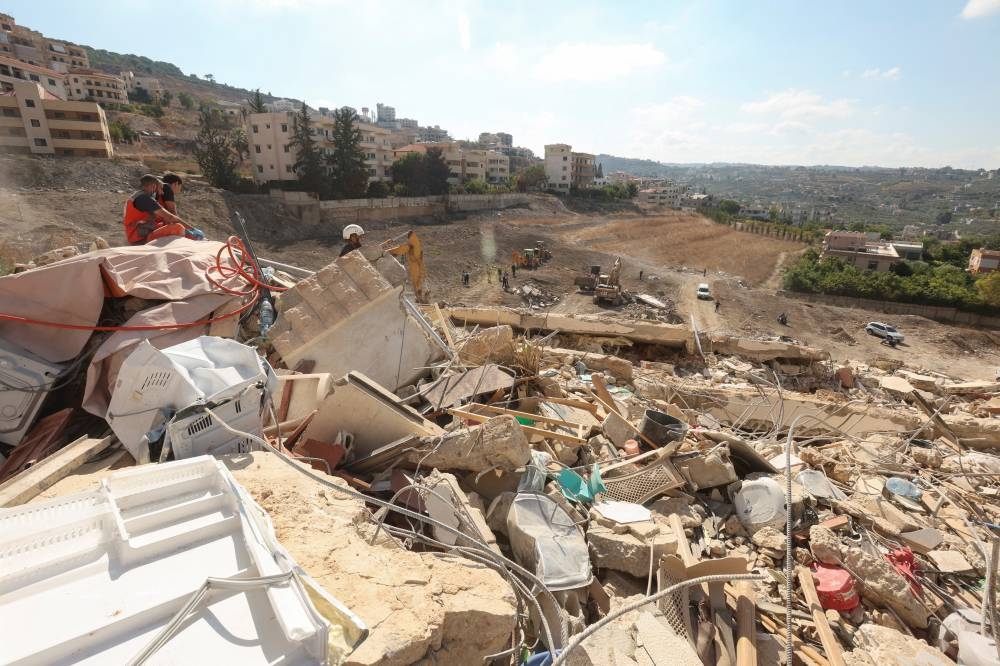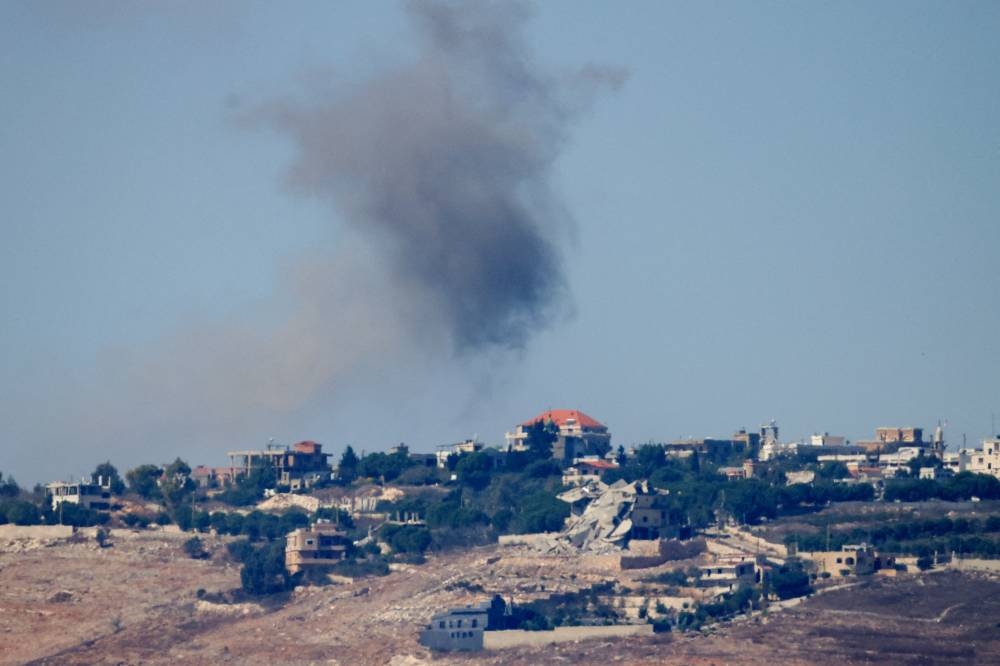- Britain calls for ceasefire
- Israel defence minister addresses troops near border
- Israeli strikes hit towns
- Kremlin condemns Nasrallah killing
- Hezbollah will choose new leader 'at the earliest opportunity'
- Israel hits Beirut city limits
- Lebanon reports over 1,000 killed in two weeks
Hezbollah fighters are primed to confront any Israeli ground invasion of Lebanon, the group's deputy leader Naim Qassem said on Monday in his first public speech since Israeli airstrikes killed its veteran chief Hassan Nasrallah last week.
Israel will not achieve its goals, he said.
"We will face any possibility and we are ready if the Israelis decide to enter by land and the resistance forces are ready for a ground engagement," he said in an address from an undisclosed location.
He was speaking as Israeli airstrikes on targets in Beirut and elsewhere in Lebanon continued, extending a two-week long wave of attacks that has eliminated several Hezbollah commanders but also killed about 1,000 Lebanese and forced one million to flee their homes, according to the Lebanese government.
"We will choose a secretary-general for the party at the earliest opportunity...and we will fill the leadership and positions on a permanent basis," Qassem said.
Qassem said Hezbollah's fighters had continued to fire rockets as deep as 150 km into Israeli territory and were ready to face any possible Israeli ground incursion.
"What we are doing is the bare minimum...We know that the battle may be long," he said. "We will win as we won in the liberation of 2006 in the face of the Israeli enemy," he added, referring to the last big conflict between the two foes.
Hours before Hezbollah's Qassem spoke, Hamas said an Israeli airstrike killed its leader in Lebanon, Fateh Sherif Abu el-Amin, along with his wife, son and daughter in the southern city of Tyre on Monday.
Another faction, the Popular Front for the Liberation of Palestine, said three of its leaders died in a strike in Beirut's Kola district - the first such hit inside the city limits.
The wave of Israeli attacks in Lebanon are part of a conflict also stretching from the Palestinian territories of Gaza and the occupied West Bank, to Yemen, Iraq and within Israel itself. The escalation has raised fears that the United States and Iran will be sucked into the conflict.
The latest actions indicated Israel has no intention of slowing down its offensive even after eliminating Nasrallah, who was Iran's most powerful ally in its "Axis of Resistance" against Israeli and US influence in the region.
Iranian Foreign Ministry spokesperson Nasser Kanaani said Tehran would not let any of Israel's "criminal acts" go unanswered. He was referring to the killing of Nasrallah and an Iranian Guard deputy commander, Brigadier General Abbas Nilforoushan, who died in the same strikes on Friday.
Russia said Nasrallah's death had led to a serious destabilisation in the broader region.
A spokesperson for British Prime Minister Keir Starmer said Britain called for a ceasefire, although they added that its support for Israel's right to self-defence was "ironclad".
Close ally the United States has shown unwavering support for Israel despite concerns over heavy civilian casualties.

